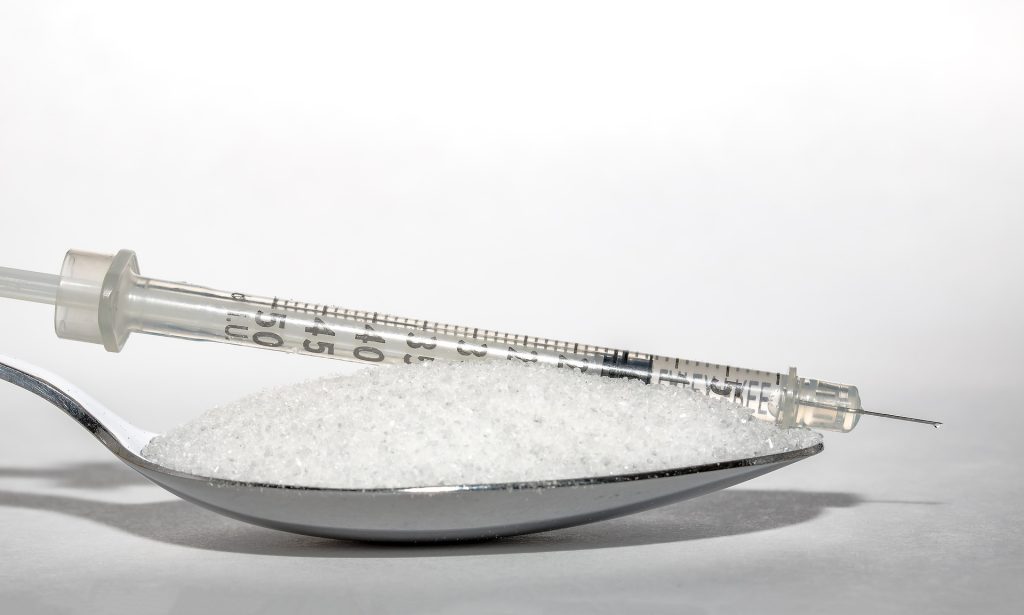
High Insulin Levels and Disease
One of the best steps you can take to improve your health and reduce your odds of chronic disease is to make sure you have healthy insulin levels. We discussed the relationship between high insulin and weight gain, but high insulin levels cause even more harm. High insulin levels increase the risk of diabetes, high blood pressure, atherosclerosis, cancer, chronic inflammation, kidney disease, non-alcoholic fatty liver disease, Alzheimer’s disease, and low HDL (good cholesterol). Yet high insulin levels are easy to prevent by what and how you eat as well as you activity level.
Healthy Insulin Levels
Insulin levels increase in response to meals containing carbohydrates. Insulin drives blood sugar into cells where it can be used for energy and into fat cells as a storage form of energy. In that regard insulin is good. In between meals, though insulin should be low. An ideal fasting insulin level should be 5 µIU/ml. Anything above that level increases the risk for the above mentioned diseases. Over a 10-year period individuals with the highest insulin levels were twice as likely to die as individuals with the lowest levels.
Why Insulin Levels are Dangerous
High insulin levels increase fat stores leading to obesity and obesity increases the risk of diabetes, high blood pressure, cancer, heart disease, and strokes.
High insulin levels are linked to higher cancer rates and that includes higher rates from medications designed to increase insulin levels (drugs used to treat diabetes – the sulfonylurea drugs). Metformin is a diabetic drug that lowers insulin levels and reduces the risk of many cancers. Excess insulin causes inflammation and free radicals which increase the chances of cancer developing. Excess insulin also promotes cell growth.
High insulin levels increase blood pressure by impairing sodium balance. Plus, high insulin damages the kidneys and the kidneys play a critical role in controlling blood pressure.
High insulin levels leading to thickening of the inner layers of arteries increasing the risk of cardiovascular disease.
Elevated insulin levels increase the production of beta-amyloid in brain cells which is associated with Alzheimer’s disease.
How to Lower Insulin Levels
Dietary changes are the most effective way to control insulin levels. Eat low glycemic carbohydrates. Eat carbohydrates along with a protein or healthy fat. This will delay the rise in blood sugar and thus insulin levels. Eat smaller meals throughout the day. This will provide the body with a relatively steady stream of energy and can temper overeating which can lead to spikes in insulin levels.
Exercise. All forms of exercise can improve insulin sensitivity. This means it takes less insulin to do the job. Resistance training, aerobic exercise and high intensity interval training have all been shown to lower insulin levels.
For type 2 diabetes metformin is the first drug of choice since it actually lowers insulin. Its use should be considered even in people with high normal blood glucose levels, or elevated insulin despite normal blood glucose levels who have additional risk factors for any of the diseases linked to high insulin levels.
